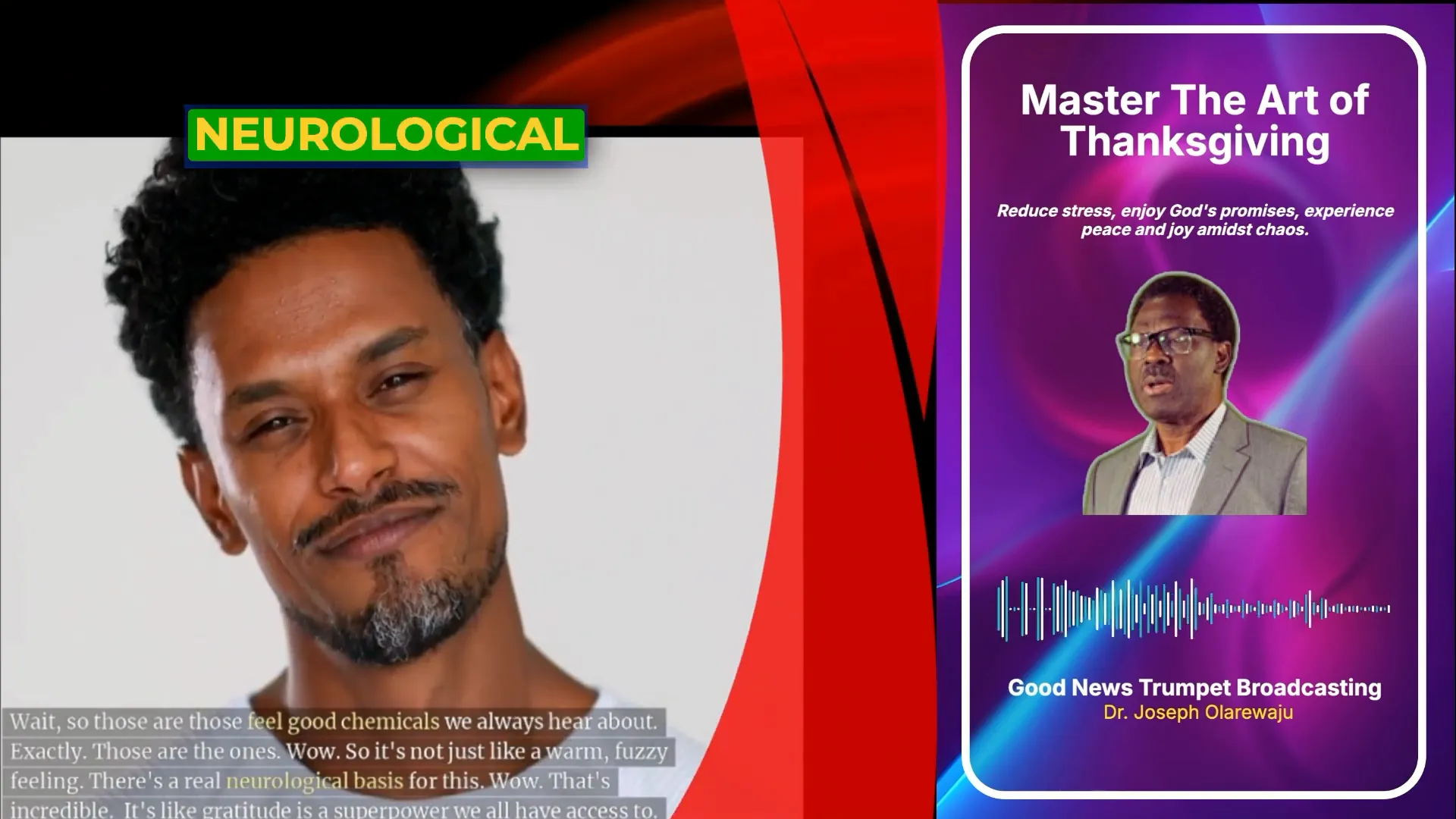How does practicing gratitude impact mental health?
Practicing gratitude has been shown to improve mental health by reducing stress, increasing happiness, and fostering positive emotions. Gratitude helps in shifting focus from negative aspects of life to positive ones, leading to improved overall well-being and mental resilience.
https://www.addtoany.com/share
https://www.addtoany.com/add_to/linkedin
https://psycnet.apa.org/record/2007-18580-006
The Teacher’s Notes–Epilogue: Knowing Jesus and His Word, Lesson 13
Gratitude is a powerful concept that transcends mere politeness or social niceties. It is a profound practice with deep roots in history and science, particularly when it comes to expressing gratitude to God. In this blog, we will explore the multifaceted nature of gratitude, its historical significance, the neurological benefits it offers, and practical ways to cultivate a grateful heart.
Understanding Gratitude
At its core, gratitude is defined as a deep appreciation for the good things in our lives, whether big or small. It involves recognizing these gifts and acknowledging their source, which in this context is God. This shift in focus from what is wrong in our lives to what is right is essential in cultivating a grateful heart.
Dr. Olarewaju emphasizes that gratitude plays a crucial role in our lives; it is not just a fleeting emotion but a way of life. It is a conscious choice to appreciate the good amidst the chaos of life. This perspective can transform our outlook and our relationships with others and God.

The Historical Roots of Gratitude
Gratitude is woven into the fabric of human history. One notable example is the Jewish Festival of Sukkot, also known as the Feast of Tabernacles. This week-long celebration commemorates the Israelites’ journey through the wilderness and their gratitude for God’s provision and protection. It serves as a reminder of the importance of giving thanks, which has been practiced for centuries.

The Science Behind Gratitude
Understanding the science behind gratitude reveals its profound impact on our mental well-being. Expressing gratitude triggers the release of dopamine and serotonin in our brains—chemicals associated with feelings of happiness and well-being, while also activating the medial prefrontal cortex. This neurological response highlights that gratitude is not just about feeling good; it has a tangible basis in our biology.
By practicing gratitude, as highlighted in studies such as the one conducted by McCullough, we can access this “superpower” that often lies dormant within us. The intentional cultivation of thankfulness can lead to significant changes in our mental health and overall outlook on life.

Gratitude in Difficult Times
One of the most challenging aspects of gratitude is maintaining it during difficult times. Dr. Olawaju emphasizes the importance of giving thanks in everything, even when faced with adversity. This does not mean ignoring pain or pretending everything is okay. Instead, it is about recognizing that God is still present, even in our darkest moments, and this realization can be vital for helping us navigate our struggles.
Finding glimmers of hope during the holiday season, such as a kind word from a stranger or simply waking up each morning, can help us focus on the positives. This practice trains our minds to look for the good, even when it feels hard to see.

The Ripple Effect of Gratitude
Gratitude is not only beneficial for the individual; it also has a ripple effect on our relationships with others. When we cultivate gratitude, it spills over into our interactions, creating a positive feedback loop that makes us more patient, understanding, and forgiving. Expressing appreciation to others affirms their value and strengthens our bonds.
When someone expresses genuine gratitude towards us, it makes us feel valued and appreciated, fostering a positive environment in our relationships.

Benefits of Practicing Gratitude
The benefits of practicing gratitude are numerous, including the many benefits of gratitude outlined by Dr. Olawaju. He highlights that it can lead to reduced stress, inexplicable joy, and a sense of peace, even amidst chaos. When we practice gratitude, our brains release those feel-good chemicals, which directly impact our mood and well-being.
Moreover, gratitude helps us trust God more, allowing us to cast our worries onto Him and relieving us from stress. The practice of gratitude shifts our focus from what we lack to what we have, leading to a more content and peaceful existence.

Cultivating a Grateful Heart
To make gratitude a habit, Dr. Olawaju suggests starting small. It’s not about making drastic changes overnight; instead, focus on incorporating small practices into your daily routine on a daily basis. Keeping a gratitude journal is one effective method. By taking just five minutes each morning to write down three things you are grateful for, you can set a positive tone for your day.
Even during daily challenges, pausing to express thanks can help shift your mindset. This practice can transform your perspective and enhance your overall well-being.

Giving Thanks for Everything
Dr. Olawaju emphasizes the importance of not only giving thanks in everything but also giving thanks for everything, including the tough stuff. This perspective may seem daunting, but it is about recognizing God’s presence and trust in His plan, even when we do not understand our circumstances. It is about having faith that He can use our most difficult experiences for our growth and ultimately for His glory.
While this does not diminish the reality of our pain, it offers a way to find meaning and purpose in our struggles, aligning our hearts with God’s heart.

Conclusion
Gratitude is more than just a practice; it is a way of life that can be integrated into our daily life. It allows us to see the world through a lens of appreciation, recognize God’s hand in everything, and cultivate deeper relationships with others and with Him. By making the choice to embrace gratitude daily, we can transform our lives and experience profound peace and joy.
As you reflect on the insights shared, consider how you can incorporate gratitude into your everyday life and support your personal growth. Remember, cultivating a grateful heart is a choice we make each and every day.
